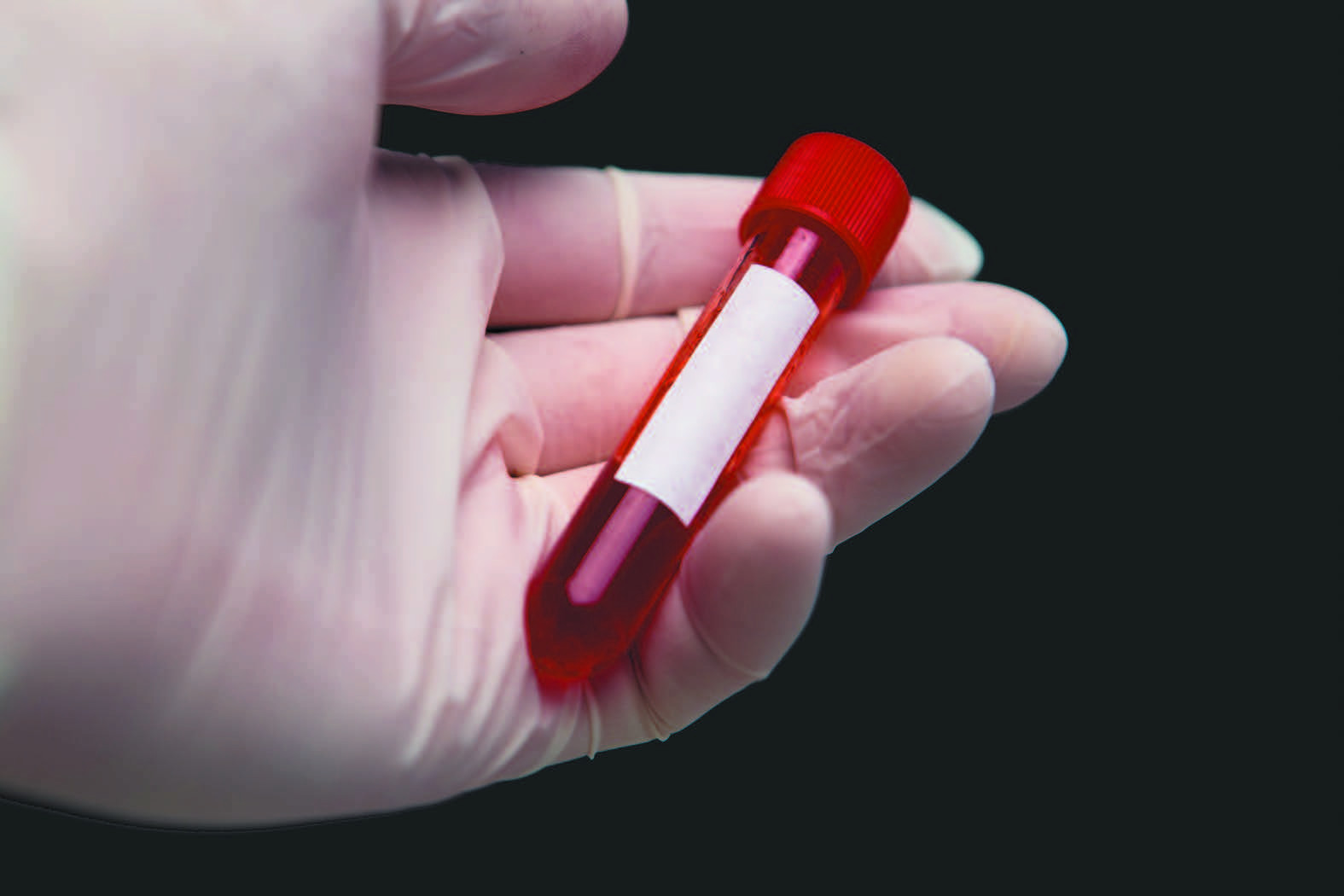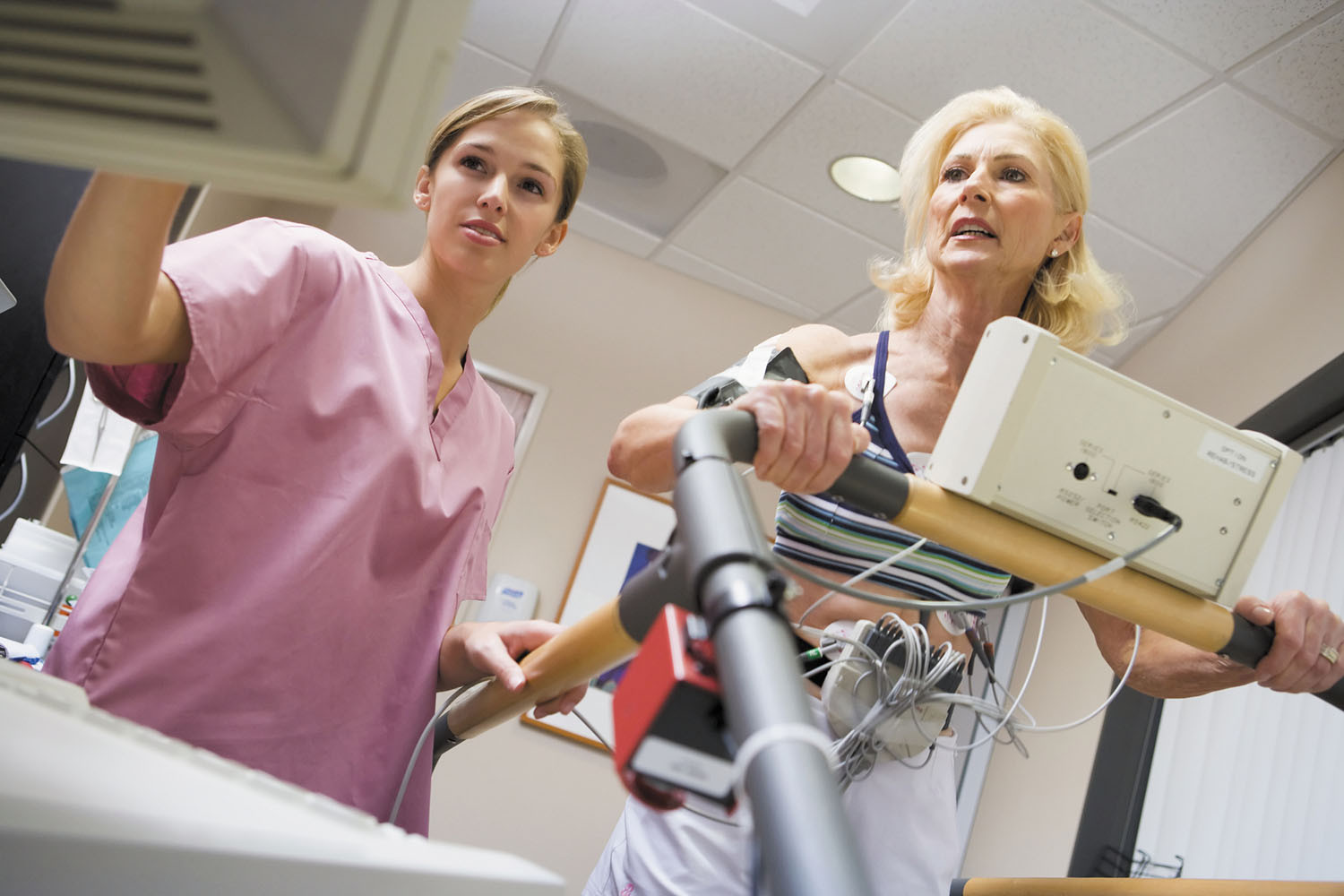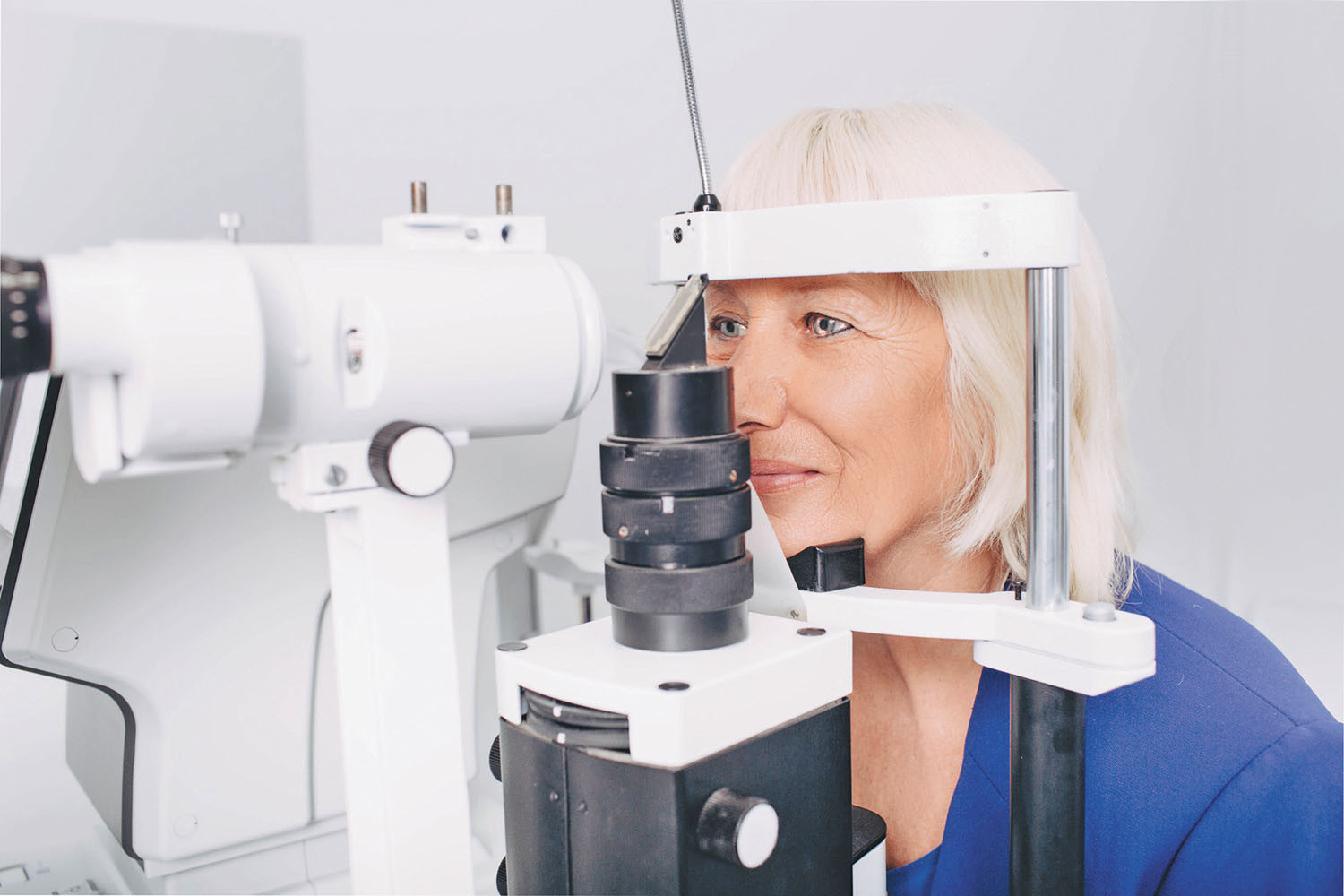
Respiratory health harms often follow flooding: Taking these steps can help

Tips to leverage neuroplasticity to maintain cognitive fitness as you age

Can white noise really help you sleep better?

Celiac disease: Exploring four myths

What is prostatitis and how is it treated?

What is Cushing syndrome?

Exercises to relieve joint pain

Think your child has ADHD? What your pediatrician can do

Foam roller: Could you benefit from this massage tool?

Stepping up activity if winter slowed you down
Medical Tests & Procedures Archive
Articles
Large review study finds low risk of erectile dysfunction after prostate biopsy
Screening for lung cancer
More people now eligible for lung cancer screening
Less-invasive treatment for unsightly leg veins as good as surgery
Research we're watching
A minimally invasive treatment for treating varicose veins is as effective as surgery to remove the faulty veins, according to a new study.
Most varicose veins — gnarled, bluish veins just under the skin's surface — result from problems with the great saphenous vein, the large vein located near the inside of the leg that runs from the ankle to the upper thigh. The surrounding muscles and one-way valves in the vein weaken, a condition called venous insufficiency.
Suspected heart attack? Don’t fear the emergency room due to COVID-19
In addition to a prompt assessment and potentially lifesaving treatment, expect a COVID-19 test and extra safety precautions.
Even before the pandemic, people with heart attack symptoms sometimes hesitated to seek emergency care. But during the first wave of COVID-19 infections in early 2020, many more people than usual stayed away. From mid-March to late May 2020, emergency room visits for heart attacks fell by 23% compared with the preceding 10 weeks. And 20% fewer people showed up with strokes, according to the CDC.
Fear of leaving home and risking exposure to the coronavirus likely explains this trend, which has abated over time. "The overall volume at emergency rooms is still somewhat below normal, and we're seeing people who come in many hours or even a day after their heart attack symptoms began," says Dr. Joshua Kosowsky, assistant professor of emergency medicine at Harvard Medical School. These people sometimes have signs of heart damage that might have been easier to reverse or treat if they had come in right away, he adds.
What is inflammation?
Think of inflammation as the body's natural response to protect itself against harm. There are two types: acute and chronic. You're probably more familiar with the acute type, which occurs when you bang your knee or cut your finger. Your immune system dispatches an army of white blood cells to surround and protect the area, creating visible redness and swelling. The process works similarly if you have an infection like the flu or pneumonia. So in these settings, inflammation is essential—without it, injuries could fester and simple infections could be deadly.
Chronic inflammation
But chronic inflammation can also occur in response to other unwanted substances in the body, such as toxins from cigarette smoke or an excess of fat cells (especially fat in the belly area). Inside arteries, inflammation helps kick off atherosclerosis—the buildup of fatty, cholesterol-rich plaque. Your body perceives this plaque as abnormal and foreign, so it attempts to wall off the plaque from the flowing blood. But if that wall breaks down, the plaque may rupture. The contents then mingle with blood, forming a clot that blocks blood flow. These clots are responsible for the majority of heart attacks and most strokes.
What to expect during an exercise stress test
Although no longer routine, this test is still a common, safe way to assess people with heart disease symptoms.
Image: © monkeybusinessimages/Getty Images
That chest discomfort you felt during your evening walk disappeared once you got back home. But a week later, you're carrying a laundry basket upstairs and the pain returns, although only briefly. It's time to call your doctor to discuss these symptoms — and possibly undergo an evaluation for coronary disease.
One test you may need is an exercise stress test, also called a treadmill test. As recently as a decade or so ago, doctors ordered these tests as part of a routine check-up in middle-aged and older men, regardless of their symptoms. Today, they're done mainly in people with symptoms that suggest heart disease, says Dr. Hicham Skali, a cardiologist at Harvard-affiliated Brigham and Women's Hospital. "In general, that means stable angina, which refers to chest pain that occurs in predictable patterns during exercise or other exertion," he says. Angina occurs when the heart muscle isn't getting enough blood, which is more likely during physical activity.
Seeing your way to better eye health
Maintaining your vision as you age requires a proactive approach.
Did you know that women are more likely than men to have eye conditions that can lead to vision loss, such as age-related macular degeneration, glaucoma, and cataracts? According to the American Academy of Ophthalmology, more than 60% of people with these conditions are women, in part because they live longer, and risk rises with age.
While women may be more at risk for eye disease, you should also know that in many instances, vision loss is not inevitable if you are proactive about your eye health.
5 tips to help you stay safe during medical treatment
Medication errors and communication problems may put people at risk.
It's been 20 years since the Institute of Medicine published its landmark report To Err is Human. It found that as many as 98,000 people were dying each year from preventable medical errors, prompting an industrywide patient safety effort that has spanned the past two decades.
An editorial published in JAMA Dec. 29, 2020, notes that in the years since that report came out, hospitals and doctors have made numerous changes that have succeeded in reducing preventable problems, such as hospital-acquired infections, falls, and medication-related errors. But more work remains to be done. Mistakes still happen.
Imaging overload: How many tests are too many?
Diagnostic technology makes it possible to detect many conditions. But is it safe to get lots of x-rays or CT scans?
When your doctor orders an occasional x-ray or computed tomography (CT) scan, you probably focus on the findings, not the amount of radiation you'll be exposed to. But if you need numerous tests, you may wonder if you're getting too much radiation exposure and how it might affect you. The concern about radiation exposure is an increased risk for developing cancer later in life. Ionizing radiation from tests such as x-rays or CT scans has the potential to damage tissue in the body, including cell DNA.
"As DNA is damaged, this causes mutations. Some of these are repaired by our cells, but others escape repair. In rare circumstances, these mutations may cause cells to divide rapidly without control," explains Dr. Mark Hammer, a radiologist with Harvard-affiliated Brigham and Women's Hospital. "If cancer were to develop, it could take 10 to 20 years for it to become apparent."

Respiratory health harms often follow flooding: Taking these steps can help

Tips to leverage neuroplasticity to maintain cognitive fitness as you age

Can white noise really help you sleep better?

Celiac disease: Exploring four myths

What is prostatitis and how is it treated?

What is Cushing syndrome?

Exercises to relieve joint pain

Think your child has ADHD? What your pediatrician can do

Foam roller: Could you benefit from this massage tool?

Stepping up activity if winter slowed you down
Free Healthbeat Signup
Get the latest in health news delivered to your inbox!
Sign Up











